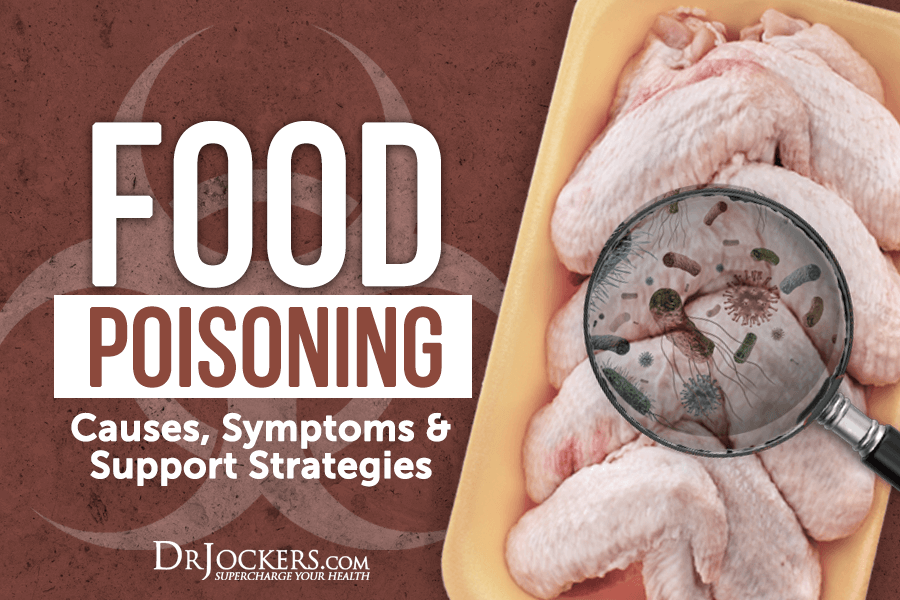2Mami Insights
Your go-to source for news, tips, and inspiration.
When Dinner Goes Wrong: Surviving the Aftermath of Food Poisoning
Discover how to bounce back from food poisoning and avoid kitchen disasters with our essential survival guide!
Top 5 Signs You Might Have Food Poisoning: What to Look Out For
Food poisoning can strike unexpectedly, and recognizing the signs early is crucial for effective treatment. Here are the top 5 signs you might have food poisoning:
- Nausea and Vomiting: These are often the first symptoms to arise, typically occurring within hours of ingesting contaminated food. If you experience persistent nausea or vomiting, it’s important to stay hydrated.
- Diarrhea: One of the hallmark indicators of food poisoning, diarrhea may be accompanied by abdominal cramps. Look out for particularly watery or bloody stools, which may require immediate medical attention. For more details, visit CDC.
- Fever: A mild fever may accompany other symptoms, signaling your body is fighting off an infection. If your temperature exceeds 101°F, consult a healthcare provider.
- Abdominal Pain: Cramping and abdominal pain can vary in intensity but often indicate digestive distress. Severe pain may be a sign of a more serious condition.
- Fatigue: The combination of dehydration and the body’s response to infection can lead to feelings of extreme tiredness. If you're feeling unusually fatigued, it may be time to seek medical advice.
Recognizing these signs early can help you take the necessary steps to protect your health. For additional information on food poisoning, check out FDA.

How to Handle Food Poisoning: Steps to Take After Dinner Goes Wrong
Experiencing food poisoning can be a distressing event that catches you off guard, especially after enjoying a meal you were looking forward to. If you suspect that you have ingested contaminated food, the first step is to remain calm and assess your symptoms. Common signs of food poisoning include nausea, vomiting, diarrhea, and stomach cramps. According to the CDC, these symptoms can appear within hours or even days after consuming the affected food. If your symptoms are mild, it is usually recommended to stay hydrated and allow your body to recover. However, be vigilant and monitor your condition closely.
If symptoms worsen or you experience severe dehydration, high fever, or prolonged vomiting, it is crucial to seek medical attention right away. Call your physician or visit an emergency room, particularly if you belong to a higher-risk group such as young children, elderly individuals, or those with weakened immune systems. For more guidance on this, check out the FDA’s food safety page. Furthermore, keeping a record of the foods you consumed prior to your symptoms can assist healthcare providers in determining the cause of your illness and implementing the necessary treatment.
When to Seek Medical Help After Food Poisoning: A Quick Guide
Food poisoning can lead to a range of symptoms, and while many cases resolve on their own, knowing when to seek medical help is crucial for your health. Generally, you should consider contacting a healthcare professional if you experience severe symptoms such as high fever (over 101.5°F or 38.6°C), prolonged vomiting, or signs of dehydration like decreased urination, dry mouth, or dizziness. Additionally, if you notice symptoms persisting for more than three days or worsening, it's best to consult a doctor. For more details on the signs of dehydration, check out this resource on CDC's Healthy Water.
Specific populations are also at greater risk and may need to seek medical attention sooner. Individuals such as children, the elderly, pregnant women, and those with weakened immune systems should be especially vigilant. If you are unsure about your symptoms, it is always better to err on the side of caution and get checked. Remember, timely treatment can help prevent complications from foodborne illnesses. For more information on when to seek medical attention after food poisoning, visit Mayo Clinic.